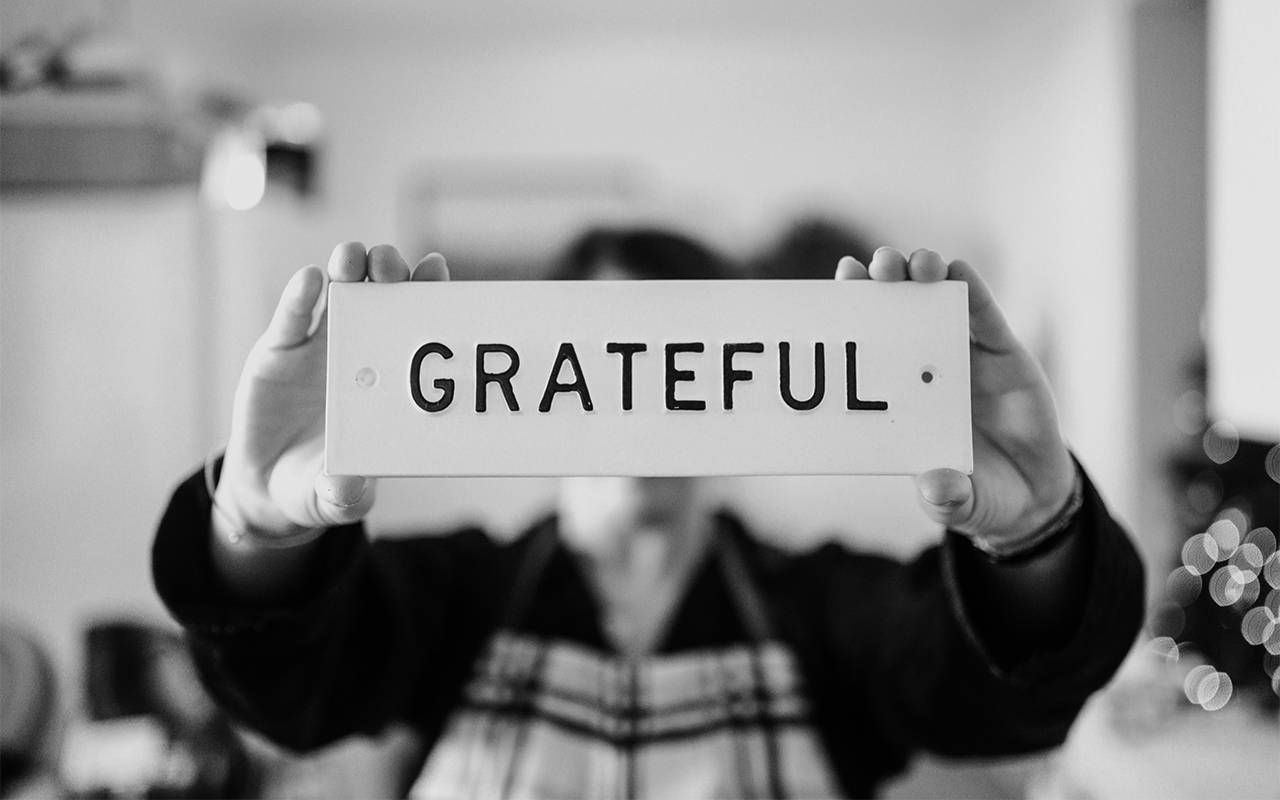The Business of Gratitude Has Taken Over Gratefulness
Commercial interests have co-opted and commodified gratefulness; for this, I am not at all thankful
Here's my unpopular position: I hate the gratitude season.

It starts right after Halloween and barrels on 'til Thanksgiving. But that's only its public display period. In fact, the gratitude mandate has wormed its way into daily living. I can't engage in real life or social media without hearing about someone's gratitude practice. Gratitude is the new Pilates.
Here's why I find that problematic, especially this time of year:
Gratitude is a business. What started as a meaningful family tradition at the holiday dinner table has blossomed into an industry. It's not enough to feel grateful. You need a journal and a calendar and candles. You need books and a podcast and social media influencers. You need workout gear and home décor reminding you to practice gratitude.
What started as a meaningful family tradition at the holiday dinner table has blossomed into an industry.
Retailers are no slouches and they've jumped up to sell you your gratitude merch. I followed a series of gratitude hashtags on Instagram for a month and was encouraged daily to purchase everything from affirmation bracelets to throw blankets to coffee mugs. Gratitude is a hot market. Consider who is getting rich off our heartfelt expressions.
How People Misuse Gratitude
Gratitude is a "shush" mechanism. I'm troubled by the way gratitude is pushed on people experiencing and expressing negative emotions. People who are angry or frustrated or grieving are often encouraged to practice gratitude daily as a way to feel better. And perhaps that quiets the individual who was ranting — but who exactly feels better in that scenario? Is it the individual in pain or the listeners who started to find all that negativity painful?
Gratitude practice is noticeably useful in a therapeutic setting. But distributed too freely (and by non-professionals), gratitude becomes a form of toxic positivity. It can paper over bad feelings in a way that may get you positive social feedback, but not necessarily address what made you sad or mad in the first place.
Gratitude is getting competitive. On a social media site I frequent, I watched a discussion of gratitude practices spiral out of control. Everyone seemed determined to out-gratitude the next gal. When one poster said she takes time each morning to list three things for which she is grateful, the next poster said she lists five things. Anyone who ventured into the conversation with mixed feelings around gratitude was quickly swamped with links to gratitude merchandise.
Gratitude is a tool of the patriarchy. Hear me out on this point — gratitude practice and merchandise are overwhelmingly pitched to women. Just look at where gratitude merchandise is sold and displayed. It ain't in the men's wear department. It's not that men don't ever engage in a gratitude practice — many do. But men are free to seek it out. We women are getting it lobbed at us. How should we interpret this experience? Do they want us to shop? Or shush? Or both?
Hear me out on this point — gratitude practice and merchandise are overwhelmingly pitched to women. Just look at where gratitude merchandise is sold and displayed.
I'm not alone in my bah humbug position. British Vogue ran an article titled "Maybe the Gratitude Trend Isn't All Positive" that suggested social demands for gratitude may cause us to downplay legitimately bad situations, such as an exploitive employer or even an abusive relationship.
What Does Science Have to Say?
Science, which has delivered many a study proclaiming the benefits of gratitude, is also taking a look at its dark side. In a study published in the Personality and Social Psychology Bulletin, researchers found thankfulness can reinforce a power hierarchy, undermining protest. Another study, this one published in the journal Basic and Applied Social Psychology, concluded that much of what we see in social media and other public settings is actually "shallow gratitude" — meaning the people offering it don't really mean it.
Even Gretchen Rubin, author of "The Happiness Project," says practices such as gratitude journaling are not universally helpful. She tried journaling. "It did not give me feelings of gratitude. It gave me feelings of irritation," she said.
To be sure, many people report finding peace and happiness in their gratitude practices. And they've been linked to an array of positive outcomes from better sleep to stronger immunity.
To those of you who have had good experiences, I say: more power to you. I'm delighted. Heck, I'm even envious. But can we agree that gratitude — true gratitude — is personal, not performative? When everyone from your boss to your pharmacist to the staff at your gym is called upon to proclaim gratitude, the act loses its intimacy and impact.
We've come to a place in which we can at least acknowledge that not everyone feels it's the most wonderful time of the year — and that's OK.
This season, I'd like to uncouple gratitude from the FOMO train. We need to make room for the idea that gratitude is not an organic experience for everyone — and for sure, not something that can be summoned on command because 'tis the season to be grateful.
People Are Different, and That's OK
We have precedent for this shift — think ahead to the December holiday season. In recent years, we have evolved culturally so that we're able to see a diversity of emotional experience in that busy month. Some love it. Some don't. I've read articles and studies that show how many people actually feel blue during the peak Christmas and New Year's festivities.
It used to be that anyone not experiencing and expressing the joy of the season was doing it wrong. We've come to a place in which we can at least acknowledge that not everyone feels it's the most wonderful time of the year — and that's OK.
We need that kind of grace now. For that, we might be truly thankful.


